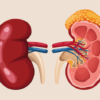Understanding Labyrinthitis and Ayurvedic Remedies
Understanding Labyrinthitis and Ayurvedic Remedies is an inner ear disorder characterized by inflammation of the labyrinth, a structure responsible for balance and hearing. This condition can lead to symptoms such as vertigo, dizziness, hearing loss, and tinnitus. While conventional medicine often provides treatment options, many individuals seek alternative approaches, including Ayurveda. This ancient Indian system of medicine emphasizes a holistic view of health, incorporating lifestyle, diet, and herbal remedies.
What is Labyrinthitis?

The labyrinth is a complex structure in the inner ear that plays a crucial role in our balance and hearing. When it becomes inflamed, usually due to viral infections, bacterial infections, or autoimmune diseases, labyrinthitis can manifest in various ways. Common symptoms include:
- Vertigo: A sensation of spinning or movement.
- Dizziness: Lightheadedness or feeling faint.
- Hearing loss: Partial or complete loss of hearing in one or both ears.
- Tinnitus: Ringing or buzzing sounds in the ears.
- Nausea and vomiting: Often accompanying severe vertigo.
Causes of Labyrinthitis
- Infections: Viral infections (like the flu or cold) and bacterial infections (often following middle ear infections).
- Head injuries: Trauma can damage the inner ear structures.
- Autoimmune disorders: Conditions like multiple sclerosis may lead to labyrinthitis.
- Allergies: Sometimes, allergies can trigger inflammation in the ear.
Ayurvedic Perspective
Ayurveda considers health as a balance between body, mind, and spirit. According to this system, labyrinthitis can be linked to an imbalance of the doshas (Vata, Pitta, and Kapha), particularly an aggravated Vata dosha. Vata governs movement and communication within the body, so its imbalance can lead to symptoms affecting balance and hearing.
Dosha Imbalance
- Vata: Associated with air and space, when aggravated, it can lead to conditions like anxiety, restlessness, and issues with balance.
- Pitta: Related to fire and transformation, an imbalance can lead to inflammation.
- Kapha: Linked to water and earth, it helps with stability; an imbalance may lead to congestion.
Ayurvedic Diagnosis
In Ayurveda, diagnosis involves a comprehensive understanding of the individual. Practitioners assess symptoms, lifestyle, and dietary habits to identify imbalances. This can include:
- Pulse Diagnosis: Analyzing the pulse for imbalance indications.
- Tongue Examination: Observing the tongue’s color, texture, and coating.
- Physical Examination: Checking for signs of inflammation or infection.
Ayurvedic Treatment Approaches
1. Herbal Remedies
Ayurveda employs various herbs to reduce inflammation, enhance immunity, and restore balance. Some effective herbs for labyrinthitis include:
- Ginger (Zingiber officinale): Known for its anti-inflammatory and anti-nausea properties, ginger can help alleviate vertigo and nausea.
- Turmeric (Curcuma longa): Contains curcumin, which has potent anti-inflammatory effects. Turmeric can be consumed in food or as a supplement.
- Ashwagandha (Withania somnifera): A powerful adaptogen that helps reduce stress and anxiety, which can be beneficial for those experiencing vertigo.
- Brahmi (Bacopa monnieri): Known for its cognitive benefits, it can help improve focus and reduce stress.
2. Dietary Modifications
Diet plays a crucial role in Ayurveda. To support recovery from labyrinthitis, consider the following dietary adjustments:
- Anti-inflammatory Foods: Incorporate foods rich in omega-3 fatty acids (like fish, walnuts, and flaxseeds) and antioxidants (like berries, leafy greens, and nuts).
- Warm, Nourishing Foods: Opt for warm soups, stews, and herbal teas to soothe the digestive system and promote healing.
- Hydration: Adequate water intake is vital, especially if nausea is present.
3. Lifestyle Changes
Adopting a balanced lifestyle can help manage labyrinthitis symptoms effectively:
- Stress Management: Practices such as yoga, meditation, and deep breathing exercises can help alleviate stress, which may aggravate symptoms.
- Sleep Hygiene: Prioritize restful sleep to support recovery. Create a calming bedtime routine and ensure your sleeping environment is comfortable.
- Regular Exercise: Gentle exercises, like walking or yoga, can help improve balance and circulation.
4. Panchakarma Therapy
Panchakarma is a detoxification process in Ayurveda that can help restore balance in the body. Some techniques include:
- Abhyanga (Oil Massage): This full-body massage using warm herbal oils helps soothe Vata and improve circulation.
- Shirodhara: A treatment involving pouring warm oil on the forehead, which can help calm the mind and reduce anxiety.
- Nasyam: The administration of herbal oils or powders through the nostrils to clear sinus congestion and reduce inflammation.
Preventive Measures
Preventing labyrinthitis involves maintaining overall health and well-being:
- Practice Good Hygiene: Regular hand washing and avoiding close contact with sick individuals can help reduce infection risks.
- Manage Allergies: Take appropriate measures to manage allergies that could exacerbate symptoms.
- Stay Hydrated: Adequate hydration supports overall health and helps prevent infections.
Conclusion
Labyrinthitis can significantly affect quality of life, but Ayurveda offers a holistic approach to treatment. By addressing underlying imbalances, incorporating herbal remedies, modifying diet, and adopting healthy lifestyle practices, individuals can find relief and promote healing. Always consult with a qualified Ayurvedic practitioner before starting any new treatment regimen, especially if you’re experiencing symptoms of labyrinthitis. Embracing Ayurveda not only aids in managing labyrinthitis but also fosters a deeper understanding of your body’s needs, leading to long-term well-being.








Leave a reply